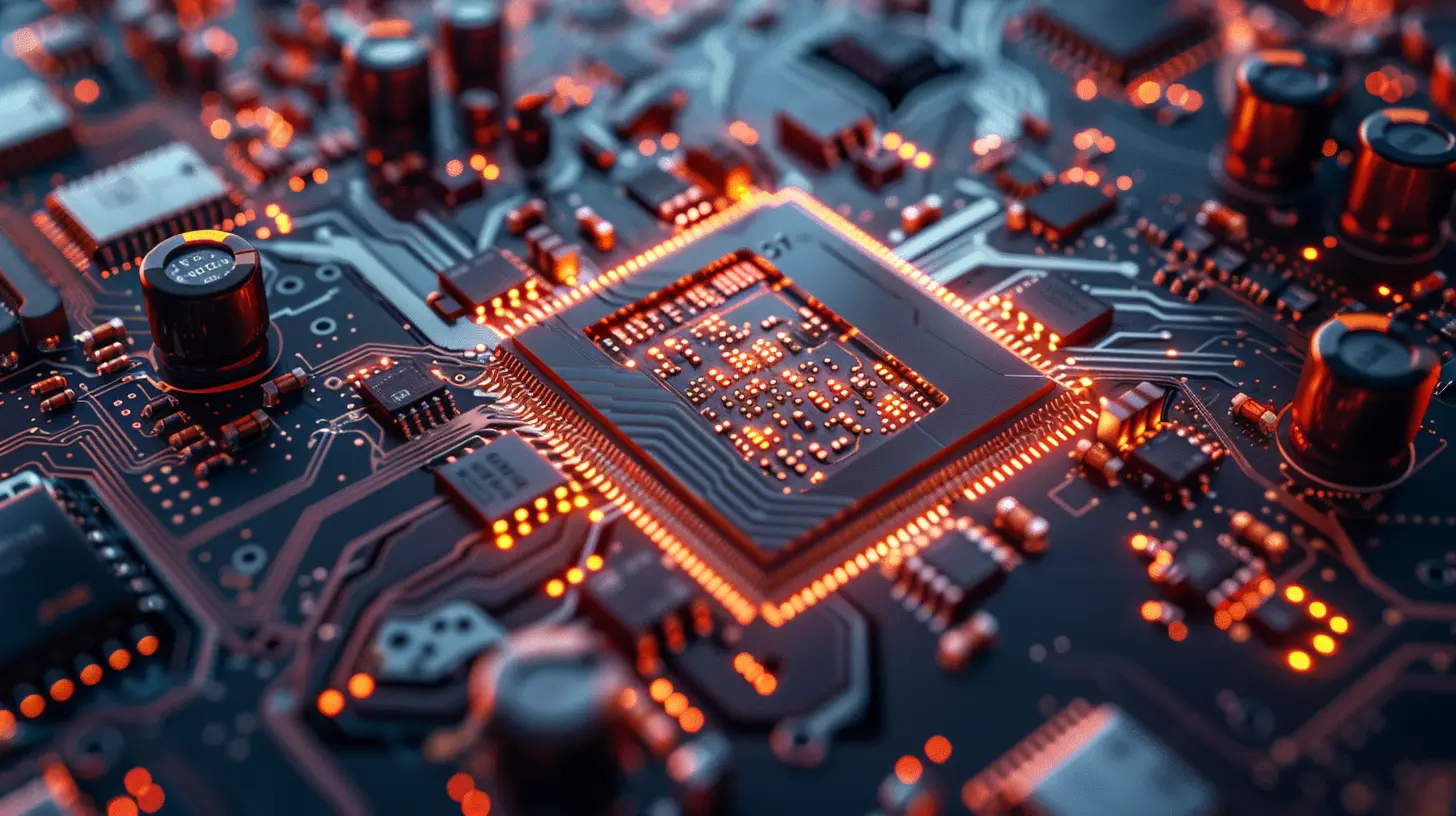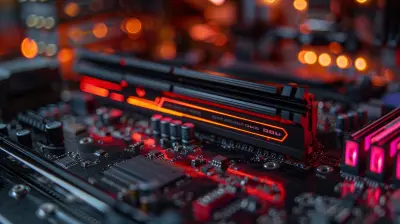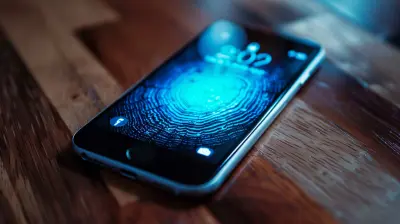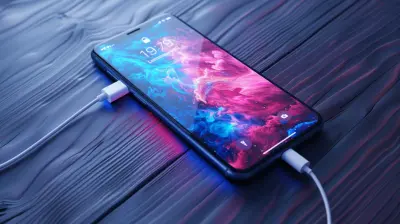The Synergy Between 5G and Quantum Computing
16 April 2025
Technology is evolving at lightning speed, and two of the most groundbreaking advancements in recent years are 5G networks and quantum computing. While they may seem like unrelated innovations at first glance, their combination has the potential to create a technological revolution.
Think of 5G as the superhighway for data transmission and quantum computing as the powerhouse for complex problem-solving. Together, they can push the boundaries of what’s possible, from real-time analytics to futuristic applications like advanced AI, ultra-secure communications, and enhanced automation.
In this article, we’ll break down how 5G and quantum computing complement each other, the emerging possibilities, and the challenges we may face along the way.

Understanding 5G: More Than Just Faster Internet
A lot of people think 5G is just about speed, but it’s so much more than that. Yes, it delivers significantly faster data transfer rates than 4G, but the real magic of 5G lies in its low latency and massive connectivity.Key Features of 5G
- Ultra-Low Latency – Reduces delays to just a few milliseconds, enabling real-time data processing.- Massive Device Connectivity – Supports millions of IoT (Internet of Things) devices simultaneously.
- Higher Bandwidth – Allows for smoother streaming, instant cloud computing, and better handling of big data.
- More Reliable Networks – Ensures stable connectivity even in densely populated areas.
With these capabilities, 5G is transforming industries like healthcare, autonomous vehicles, smart cities, and remote work. But when fused with quantum computing, the potential is mind-blowing.

What is Quantum Computing?
While traditional computers use bits (0s and 1s) to process information, quantum computers leverage quantum bits (qubits). These qubits can exist in multiple states simultaneously, thanks to principles like superposition and entanglement.What does this mean in simple terms? Think of a traditional computer as a light switch—it’s either ON (1) or OFF (0). A quantum computer, on the other hand, is like a dimmer switch—it can be on, off, or somewhere in between all at the same time.
This unique ability allows quantum computers to process complex calculations at an unimaginable scale, solving problems that would take traditional computers millions of years in just seconds.

The Synergy Between 5G and Quantum Computing
Now, let’s connect the dots—how does quantum computing complement 5G networks?1. Supercharging Data Processing
5G enables real-time data collection, but analyzing all that information instantly is a challenge with classical computing. Enter quantum computing. With its immense processing power, quantum systems can:- Analyze huge datasets generated by 5G networks in real-time.
- Improve AI-driven automation by processing data at quantum speed.
- Optimize network traffic for faster, smarter, and more efficient 5G networks.
2. Revolutionizing Cybersecurity
With rapid connectivity, cybersecurity risks grow exponentially. Hackers are constantly finding new ways to exploit weaknesses in traditional encryption methods. Quantum computing can change that with:- Quantum Cryptography – Quantum key distribution (QKD) ensures that encrypted data remains unbreakable.
- Enhanced Network Security – Quantum algorithms can detect security breaches faster than conventional methods.
Imagine a world where data is completely hack-proof. That’s where we’re headed with quantum-enhanced security.
3. Optimizing Smart Cities and IoT Applications
The Internet of Things (IoT) is booming. From smart homes to autonomous factories, millions of devices are interconnected through 5G networks. However, managing such vast amounts of data is a challenge.Quantum computing can:
- Help predict and prevent traffic congestion in smart cities.
- Optimize energy distribution, making cities more sustainable.
- Enhance predictive maintenance in industries by processing IoT sensor data at an unprecedented speed.
4. Transforming Edge Computing
Edge computing refers to processing data closer to the source instead of relying on centralized cloud servers. With the rise of 5G, edge computing is becoming essential for reducing latency and improving efficiency.Quantum computing can take edge computing to the next level by:
- Processing decentralized data instantly.
- Enhancing AI-driven decision-making in real-time.
- Making cloud and edge computing exponentially smarter and more efficient.
5. Advancing Drug Discovery and Healthcare
The medical field is another area where 5G and quantum computing can revolutionize efficiency. Consider these benefits:- Faster drug discovery – Quantum algorithms can analyze chemical reactions at an atomic level, speeding up the development of new medicines.
- Remote surgeries – With low latency 5G and quantum-generated real-time simulations, surgeons can perform precise robotic surgeries from anywhere in the world.
- Personalized medicine – Quantum computation can process genetic data faster, leading to predictive and customized treatments.

Challenges of Integrating 5G and Quantum Computing
While 5G and quantum computing together paint an exciting future, we’re not there yet. A few challenges need to be addressed:1. Infrastructure and Cost
Quantum computers require extremely low temperatures to function, making them expensive to maintain. Combining them with 5G networks demands a huge investment in infrastructure.2. Compatibility Issues
Current internet protocols and network architectures weren’t built for quantum data processing. Upgrading them to support quantum computing will take time and effort.3. Security Concerns
Although quantum cryptography can enhance security, quantum hacking is also a possibility. If in the wrong hands, quantum-powered cyberattacks could break existing encryption methods.4. Scalability
Quantum computing is still in its early stages. Scaling up to efficiently handle global 5G networks is a challenge that researchers are actively working on.What the Future Holds
Despite the challenges, the marriage of 5G and quantum computing holds tremendous promise. As both technologies evolve, we will witness:- Smarter AI-powered 5G networks that adapt in real-time.
- Unbreakable encryption, reshaping cybersecurity.
- Revolutionized industries from healthcare to logistics.
- Faster and more efficient IoT ecosystems.
The journey has just begun, but one thing’s for sure—the fusion of 5G and quantum computing will change the digital landscape forever.
Final Thoughts
5G is the nervous system that connects everything, while quantum computing is the brain that processes and solves the toughest challenges. Together, they have the potential to transform industries, enhance security, and unlock scientific breakthroughs.Yes, we still have hurdles to overcome, but if history has taught us anything, it’s that technological evolution is unstoppable. So, buckle up—because the future of 5G and quantum computing synergy is just getting started!
all images in this post were generated using AI tools
Category:
5g TechnologyAuthor:

Reese McQuillan
Discussion
rate this article
8 comments
Eva McAndrews
This article brilliantly explores the exciting possibilities at the intersection of 5G and quantum computing. It’s inspiring to think about their potential to transform technology together!
May 9, 2025 at 6:50 PM

Reese McQuillan
Thank you! I'm glad you found the article inspiring. The synergy between 5G and quantum computing indeed holds immense potential for the future of technology!
Arlo Hamilton
Future's tech dance-off!
April 29, 2025 at 10:23 AM

Reese McQuillan
Absolutely! The possibilities of a tech dance-off are endless with 5G and quantum computing leading the way!
Nell McCarthy
The fusion of 5G and quantum computing represents a transformative leap, enhancing data transmission, processing speed, and security—paving the way for innovations that can redefine our technological landscape.
April 22, 2025 at 10:24 AM

Reese McQuillan
Thank you for your insight! The synergy between 5G and quantum computing indeed holds immense potential for revolutionizing technology and improving security and efficiency.
Kassandra Barker
This article brilliantly highlights the exciting intersection of 5G and quantum computing! The potential for faster data transmission and advanced processing is truly groundbreaking. Can't wait to see how this synergy unfolds!
April 21, 2025 at 7:26 PM

Reese McQuillan
Thank you for your kind words! I'm equally excited about the potential advancements that 5G and quantum computing can bring. Stay tuned for more developments!
Candace Reyes
5G and quantum computing may redefine connectivity, unlocking unprecedented innovation and transforming our digital reality.
April 21, 2025 at 11:44 AM

Reese McQuillan
Absolutely! The interplay between 5G and quantum computing has the potential to revolutionize connectivity, enabling groundbreaking innovations and transforming our digital landscape.
Ruby Bell
This article brilliantly highlights how the integration of 5G and quantum computing can revolutionize data transmission and processing, unlocking unprecedented capabilities in various sectors. Exciting times ahead for tech innovation!
April 20, 2025 at 2:40 AM

Reese McQuillan
Thank you! I'm glad you found the article insightful. The potential of 5G and quantum computing truly is exciting!
Tyler McNeely
The convergence of 5G and quantum computing heralds a pivotal evolution in technology. As 5G enhances connectivity, quantum computing can accelerate data processing, unlocking unprecedented capabilities across industries—transforming everything from communications to problem-solving in ways we are only beginning to envision.
April 17, 2025 at 4:33 AM

Reese McQuillan
Thank you for your insightful comment! The synergy between 5G and quantum computing indeed promises to revolutionize tech by enhancing connectivity and accelerating data processing across various industries. It's an exciting frontier!
Wolf Rocha
Great article! The intersection of 5G and quantum computing presents exciting possibilities for advancements in data processing and communication. Looking forward to seeing how this synergy evolves in future applications!
April 16, 2025 at 11:39 AM

Reese McQuillan
Thank you for your feedback! I share your excitement about the potential of 5G and quantum computing to revolutionize data processing and communication. Stay tuned for future developments!
MORE POSTS

The Advantages of DDR5 RAM: Should You Upgrade Now?

Are Laptops with Detachable Screens the Future of Computing?

How to Stay Safe from Spear Phishing Attacks

How Neobanks are Reshaping Personal Finance for the Digital Age

Exploring the Future of Smartphone Security: What’s Next?

The Latest in Smartphone Charging Technology